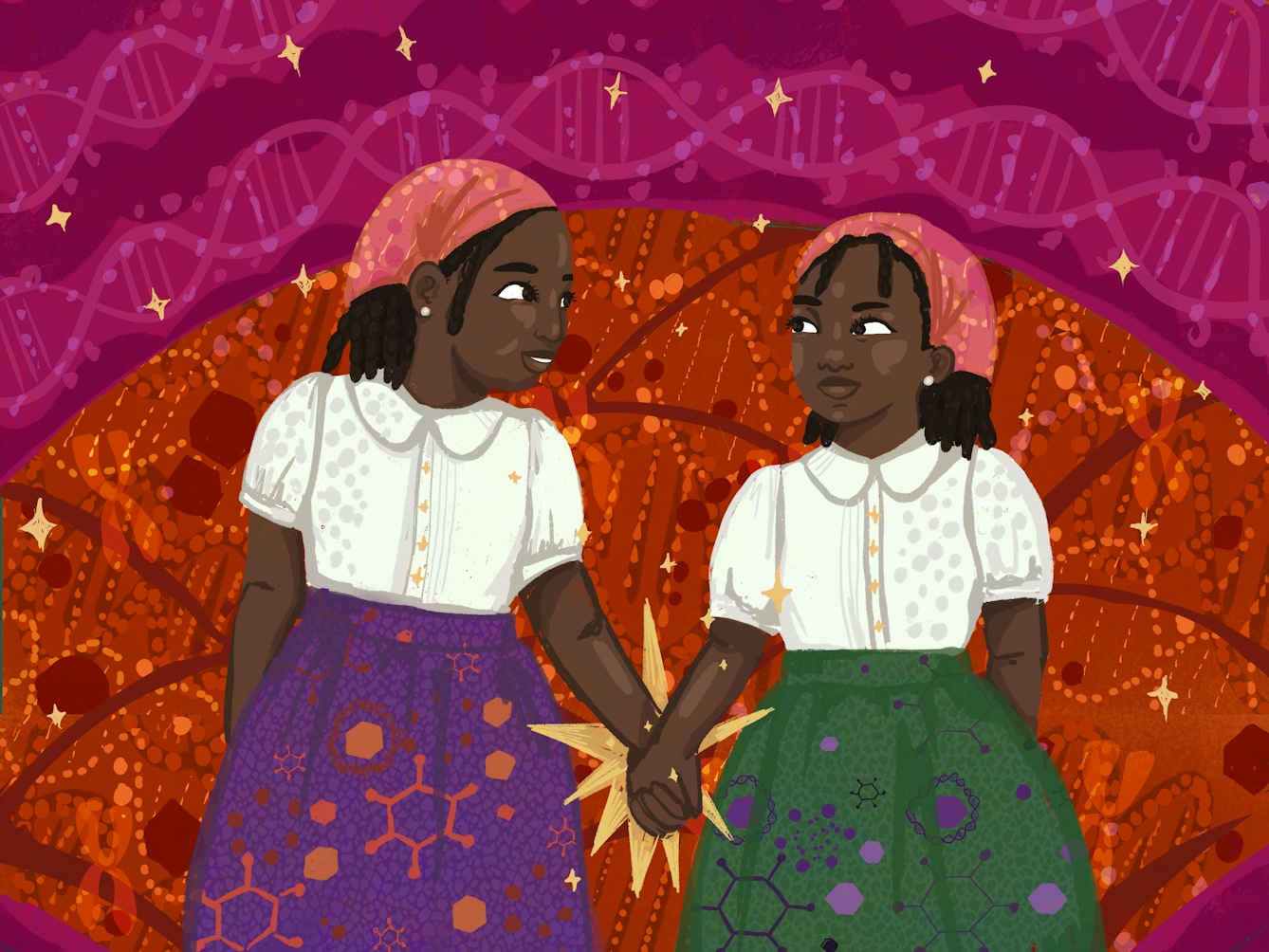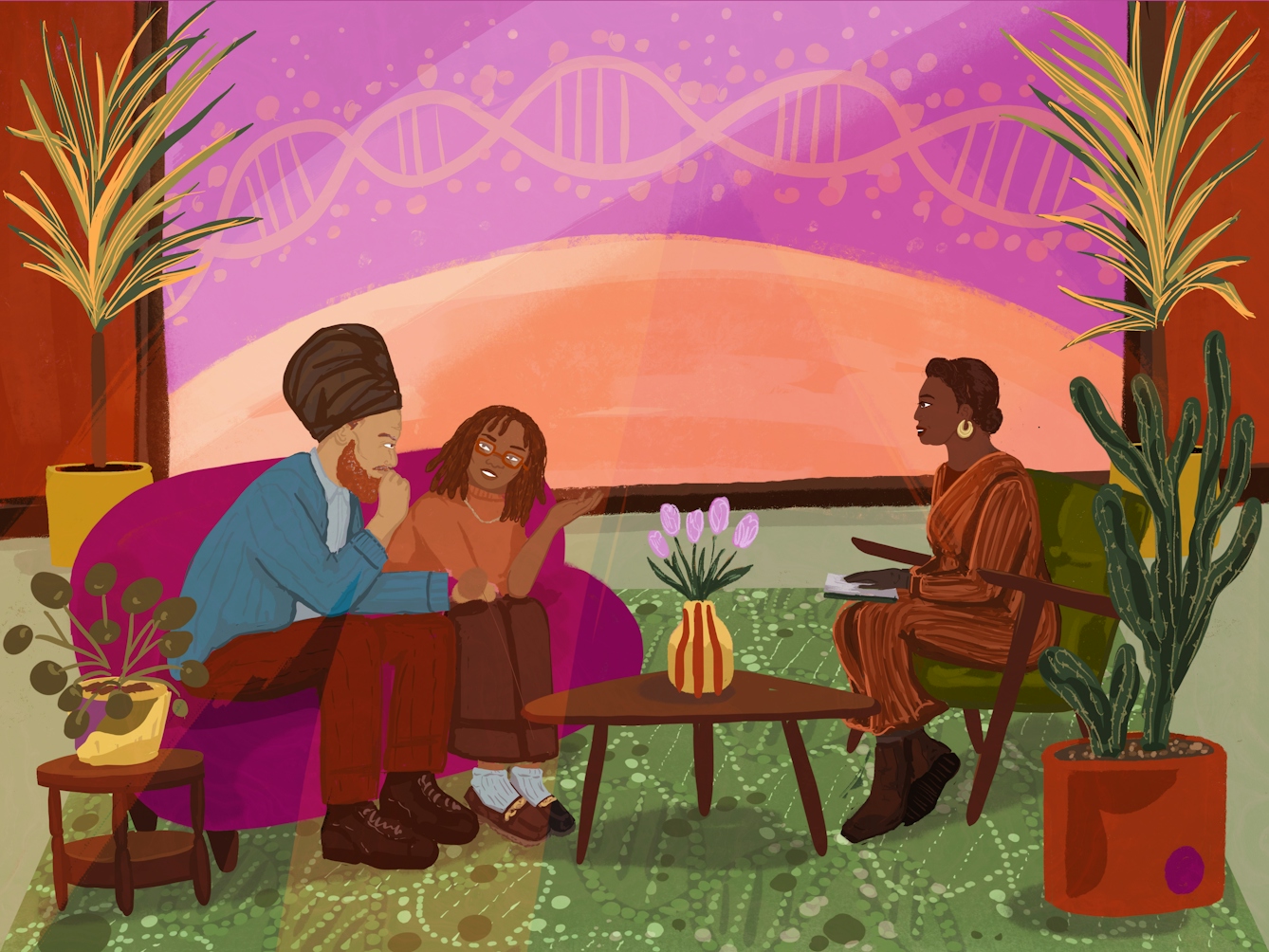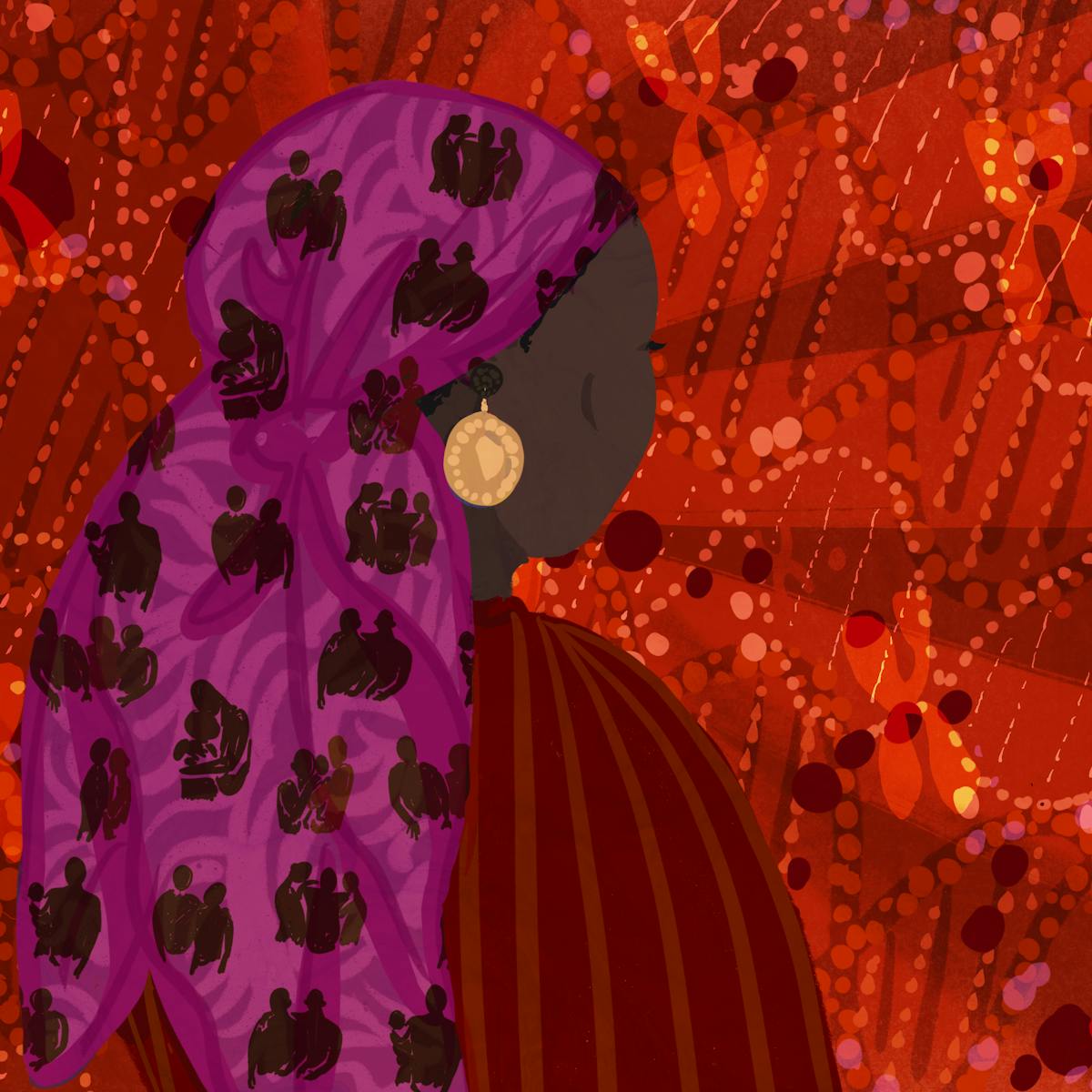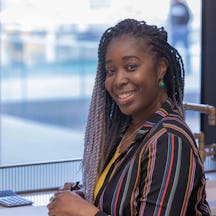Sasha Henriques became a genetic counsellor in 2011 to help people make informed decisions about their health. But her chosen profession is one that perpetuates and reinforces inequality and bias. In speaking up for those most underserved and building a community of like-minded experts, Sasha’s plans to change this state of affairs have taken root.
I was raised in East London by a Rastafarian mother who nurtured the importance of community in my life from a young age. When I was a child, she took me to Rastafarian gatherings, often held in community halls and centres. They were spaces of love and deep connection, full of wonderful memories.
The need to connect and belong can be powerful and unspoken. A particular Genna (Ethiopian Christmas, celebrated on 7 January) event, when I was about ten, remains etched in my mind as a case in point.
My sister and I were among the few children who didn’t have dreadlocks and weren’t wearing headwraps; my mother had decided we could choose this for ourselves when we were older, as she had done.
Even though we were four years apart, my mother dressed my younger sister and I alike. That day our matching outfits were crisp white shirts with handkerchiefs in the lapels and patterned skirts. My skirt was purple, and hers green.
While the adults drummed, chanted and cooked, we children played games in the large community hall.
Without consulting each other, my sister and I removed the handkerchiefs from our shirts and wrapped them around our heads, to match the many around us who dressed this way. We carried on playing and laughing with the other children.
The music, prayers and chants at these events spoke of love, peace, justice, unity and the pursuit of knowledge. Little did I know at the time, but these values were being instilled in me, and influenced my eventual decision to pursue a career in genetic counselling.
“Jah Jah give us life to live
So let us live
Oh yeah, no feel no way
When I man say
Too much injustice
Is upon the land”
The only Black woman in genetics
I started my career in 2011. And although I’d worked with patients from many cultures, even spending some time working in South Africa, I was often a minority in the genetic workforce: I was the only Black woman practising as a genetic counsellor in South Africa and the United Kingdom for many years.

“Without consulting each other, my sister and I removed the handkerchiefs from our shirts and wrapped them around our heads, to match the many around us who dressed this way.”
I became a genetic counsellor because I wanted to help people make decisions about their health through knowledge and understanding; to find some sense of peace even when a genetic condition had impacted them in devastating ways.
Many years ago, I saw a young couple who had just immigrated from Afghanistan. I met them when their first daughter was diagnosed with a life-limiting neurological disease. I remember how challenged but privileged I felt to help them navigate their relationship, faith, shock and sense of despair.
I met that same couple over many years for genetic testing in subsequent pregnancies. Although their first daughter sadly died at eight years old, they went on to have to two healthy children and create a happy life for their family.
But preventing, predicting and managing genetic conditions in a healthcare setting isn’t always fair. Not all communities access the benefits of genetic testing and genetic counselling in the same way.
This is true across the globe. Indigenous and minoritised communities often face disparity and inequality, and because of cultural challenges and systemic injustice. Genetic practice isn’t always inclusive for those with rare diseases, disability or impairment. This means the burden of diagnosis and adequate treatment is too often more significant for those communities who are also most underserved.
I have seen patients who couldn’t afford the journey to a genetic clinic, people who have been incorrectly told genetic testing was not for them based on ethnicity, and people who have received information about their healthcare in a language they could not understand.
The turning point
In England, around 2018, I remember sitting in a large meeting discussing the training of genetic counsellors and how the lack of diversity in our profession, both cultural and socioeconomic, could be due to biases in recruitment. After an awkward silence, my concerns were dismissed. “Bias would always exist” was the response, with a hurried apology for the gender disparity, and the meeting quickly moved on to other matters.
There was comfort in that moment of solidarity and connection, a glimmer of hope that the value of Black lives was at the forefront of discussions.
I felt alone and frustrated that my responsibility to address issues that affected those like me was not even acknowledged.
My feelings of isolation in the field intensified during the Covid-19 lockdowns and the murder of George Floyd – but these events also galvanised me into action. For the first time in many years I joined the thousands who took to the streets in protest. There was comfort in that moment of solidarity and connection, a glimmer of hope that the value of Black lives was at the forefront of discussions.
In the months that followed, I became more determined to address the inequalities in clinical genetics and health that I had witnessed. I began speaking at genetic conferences on the topic, working with senior-level colleagues and health professionals across my hospital trust to address the inequalities exposed by the pandemic. I even expanded my teaching of cross-cultural communication skills to be more inclusive in my practise.
And through this, I made connections with others in the field for whom issues of equity and social justice are important and urgent.
“Everybody fighting to reach the top
How far is it from the bottom
I don't want no peace
I want equal rights and justice”
Support systems
Once I found myself in a community of others passionate about addressing the inequality in genetics, some of that frustration from those earlier days in genetics could be channelled into action.

“I have seen patients who couldn’t afford the journey to a genetic clinic, people who have been incorrectly told genetic testing was not for them based on ethnicity, and people who have received information about their healthcare in a language they could not understand.”
A significant moment in building my genetics community around equality was fuelled by a piping-hot green tea on London’s South Bank on a rainy Friday afternoon. I was meeting a researcher who I had been told was interested in inclusion in genetics; her name was Mavis Machirori.
Mavis was warm and chatty, and by chance we had a mutual acquaintance who I had gone hiking with in Lesotho. It was with Mavis that I began a public-engagement initiative called Genetics Engage.
As a direct result of building this community I began a PhD fellowship with Wellcome Connecting Science, researching into structural inequalities in genetics. Importantly, this work addresses the issues around how describing and grouping people in genetic research can drive inequality.
My community is ever-growing. I am proud to have friends and colleagues across the country and the globe who share my values of justice and equity.
I am no longer the only Black woman I know practising genetic counselling in the UK or South Africa. Nor am I the single voice speaking up for diversity and inclusion in meetings.
Although we all start from somewhere unique, distinct and important to us, we can share the same vision of a destination and can support, cheer and guide each other through our journeys in life.
I never did get dreadlocks, and those Rastafarian celebrations are no longer in community halls for me. Our communities have grown and evolved as we have over the years. But each year we all return to my family house on 7 January to celebrate Genna.
The air still carries the sounds of drums and roots reggae music with its messages of love, justice and unity. The air is still fragrant with the Jamaican smells of scotch bonnet, thyme and pimento.
Our community now includes partners, godchildren, nieces, nephews and close friends. But as the doors open to Genna in my mother’s Rastafarian house, I wrap colourful fabric intricately around my head, just as I have since childhood, then resume in joy, love and laughter.
About the contributors
Sasha Henriques
Sasha is a principal genetic counsellor at Guy’s and St Thomas’ NHS Trust (GSTT), and a PhD candidate with Wellcome Connecting Science and Cambridge University, UK. Her doctoral research explores the role of social justice in addressing the structural inequalities in genomic research that arise through the categories of human population descriptors. She is also a speaker, course director and lecturer around equity, diversity and inclusion (EDI) for genomic professionals and genetic counselling trainees. She is active in sharing genetics with all communities and believes that true inclusivity goes far beyond the patient-clinician interaction; as such, she co-founded Genetics Engage, a public-engagement platform to promote inclusivity in all things genetic.
Tinuke Fagborun
Tinuke Fagborun is a British Nigerian illustrator. She grew up in a Nigerian household with a dad who loved to tell stories from West African folklore and Yoruba mythology. This led to a desire to celebrate diverse storytelling. Her style has developed over time to incorporate her heritage, borrowing from its rich history, colour, textiles and intricate patterns.


